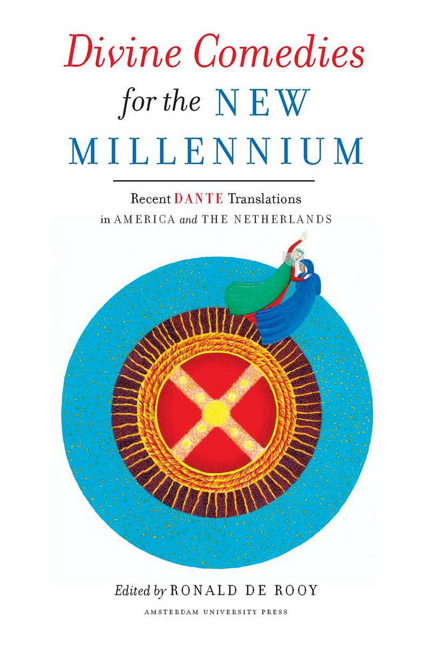Book contents
- Frontmatter
- Contents
- IntroductionDivine Comedies for the New Millennium. Humbleness and Hubris
- The Translations of Dante’s Comedy in America
- Translating Dante into English Again and Again
- ‘Getting Just a Small Part of it Right’
- The Poet Translated by American Poets. In Search of the Perfect ‘Trasmutazione Musaica’
- Ciò Che Potea La Lingua Nostra. One Hundred and More Years of Dante Translations into Dutch
- Translating Dante’s Translations
- Notes
- About the Contributors
- Selected Bibliography of American and Dutch Dante Translations
- Index of Names
- Miscellaneous Endmatter
The Poet Translated by American Poets. In Search of the Perfect ‘Trasmutazione Musaica’
Published online by Cambridge University Press: 23 January 2021
- Frontmatter
- Contents
- IntroductionDivine Comedies for the New Millennium. Humbleness and Hubris
- The Translations of Dante’s Comedy in America
- Translating Dante into English Again and Again
- ‘Getting Just a Small Part of it Right’
- The Poet Translated by American Poets. In Search of the Perfect ‘Trasmutazione Musaica’
- Ciò Che Potea La Lingua Nostra. One Hundred and More Years of Dante Translations into Dutch
- Translating Dante’s Translations
- Notes
- About the Contributors
- Selected Bibliography of American and Dutch Dante Translations
- Index of Names
- Miscellaneous Endmatter
Summary
E però sappia ciascuno che nulla cosa per legame musaico armonizzata si può de la sua loquela in altra transmutare, sanza rompere tutta sua dolcezza e armonia.
Therefore everyone should know that nothing harmonized according to the rules of poetry can be translated from its native tongue into another without destroying all its sweetness and harmony.
(Convivio I, VII, 14)In the most recent flux of English and American translations of Dante's Comedy, there is a clear tendency towards translations made by poets. This trend coincides with a renewed, strong interest in translations in terza rima. Within the period 1994-2002 twelve English and American canticles were published, ten of which were translated – partially or totally – by poets. What's more, seven of these canticles adopt a certain type of terza rima as their metrical solution.
Dante and the Modern Poets
These close ties between Dante and twentieth-century poets are by no means a new or unknown phenomenon. During the entire twentieth century, in fact, numerous English-speaking poets and writers showed considerable interest in Dante and in his work. A multifaceted overview of their views can be found in The Poets’ Dante (2001), an entire volume dedicated to the many theoretical, critical, philosophical and existential responses to Dante's work by (mostly English and American) twentieth-century poets. In the first part of this book, the editors brought together several classical essays that play a fundamental role both in the history of modern Dante reception outside Italy and in the history of modern Dante translations. Famous poets like T.S. Eliot, Ezra Pound, Osip Mandelstam, Eugenio Montale and Seamus Heaney share their insights on Dante's influence on their own poetry and on modern poetry in general. The second part is crammed with essays by more recent generations of English and American poets and poetesses who reflect on their own bonds with the great Florentine poet.
The results of a similar project were presented in 1993, only eight years earlier. Under the guidance of Daniel Halpern, Ecco Press published a volume entitled Dante's Inferno. The only difference between the projects was that here the poets’ responses to Dante's Comedy were presented as translations.
- Type
- Chapter
- Information
- Divine Comedies for the New MillenniumRecent Dante Translations in America and the Netherlands, pp. 55 - 74Publisher: Amsterdam University PressPrint publication year: 2003



